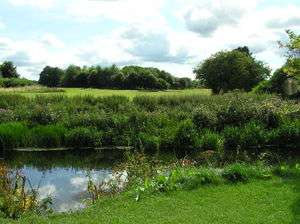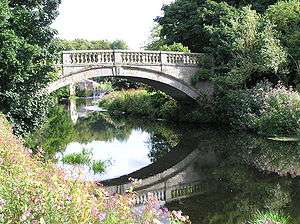Pollok Country Park


Pollok Country Park is a 146-hectare (360-acre) country park located in Pollok, south Glasgow, Scotland.[1] In 2006 Pollok County Park was named Britain’s Best Park[2] and in 2008, it was named the Best Park in Europe, beating competition from parks in Italy, France, Germany, Poland and Sweden.[3]
History and features
The park was originally part of the Old Pollok Estate, which was home to the Maxwell family for over 700 years. In 1966 Mrs Anne Maxwell Macdonald gifted the estate, including Pollok House, to Glasgow Corporation with the condition that it remained a public park. In 1878 the Poloc Cricket Club was established. In 1954 it also became home to Pollokshaws Bowling Club, the land donated by Sir John Maxwell Stirling-Maxwell of Pollok House. The club, an important part of the local community, moved across Pollokshaws Road to celebrate its centenary.
The park also contains the Burrell Collection, a purpose-built building designed to hold the large, eclectic antique and art collection of shipping magnate William Burrell, who donated the collection to the City of Glasgow on his death. Another feature of interest is the award-winning fold of Highland cattle. This fold is the most accessible of this species for the majority of Scots. In 2004, three mountain biking routes were opened by Olympic cyclist Chris Hoy. Strathclyde Police's mounted and dog-handling divisions are based in the park.
Protests
In the early 1990s the park was the site of a road protest camp, the "Pollok Free State", which attempted to prevent the M77 motorway from cutting through the south west side of the park and separating it from the nearby housing schemes. The road cost £53 million and destroyed 5000 trees in a seven-mile stretch of the park. Protesters, including local schoolchildren, attempted to prevent this using tactics such as building and occupying treehouses and tunnels. There was also a "Carhenge" of burnt-out and half-buried cars, from as far afield as Brighton, placed in the path of the road. Eviction of the camp by Wimpey bailiffs and police began on 23 March 1995, leading to 15 arrests and one injury. Though the camp failed to prevent the road being built, it was a formative experience for many Glasgow activists who had no previous experience of direct action. It also led to the resignation of M.P. Allan Stewart.[4]
In early 2008 a campaign to "Save Pollok Park" had to be formed, protesting against outdoor adventure company Go Ape. The company was invited by Glasgow City Council to enhance outdoor recreational activities within the park. Over five thousand residents objected to the proposals to site a high wire forest adventure in the ancient North Wood.
References
- ↑ "Living in Glasgow Pollok County Park". web page. Glasgow City Council. 31 July 2012. Retrieved 28 September 2012.
- ↑ "Glasgow Boasts top Park in Britain". The List. 24 October 2007. Retrieved 2008-09-04.
- ↑ "Archived copy". Archived from the original on 2008-06-15. Retrieved 2008-06-20.
- ↑ "Pollok Free State Lives On!". Do or Die No.5. 1995. Retrieved 2008-09-04.
External links
| Wikimedia Commons has media related to Pollok Country Park. |
Coordinates: 55°49′52″N 4°18′29″W / 55.831°N 4.308°W